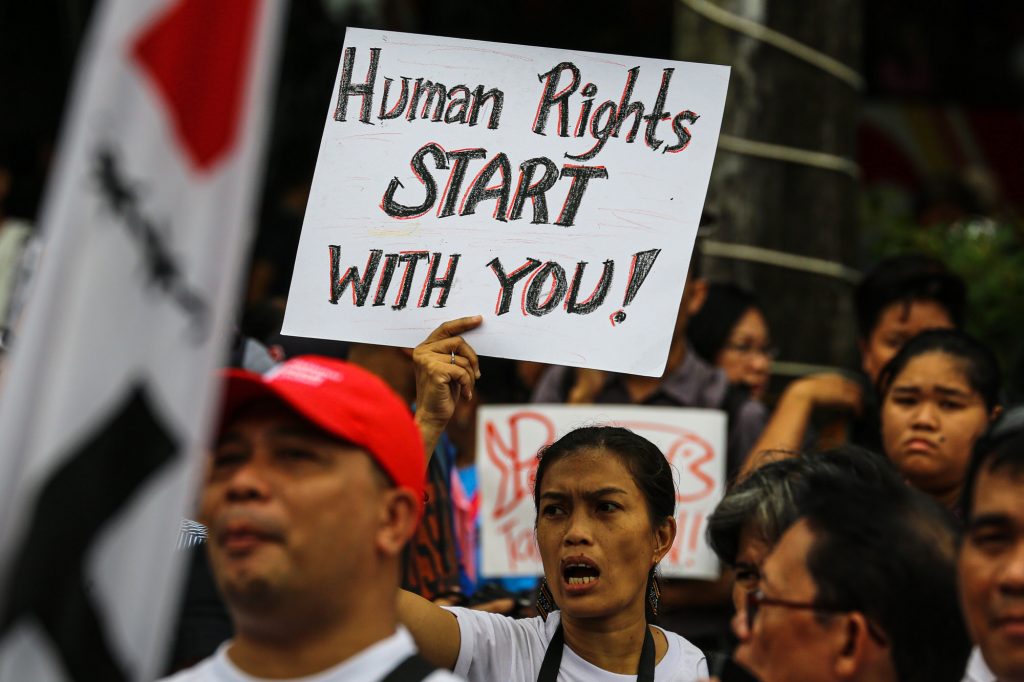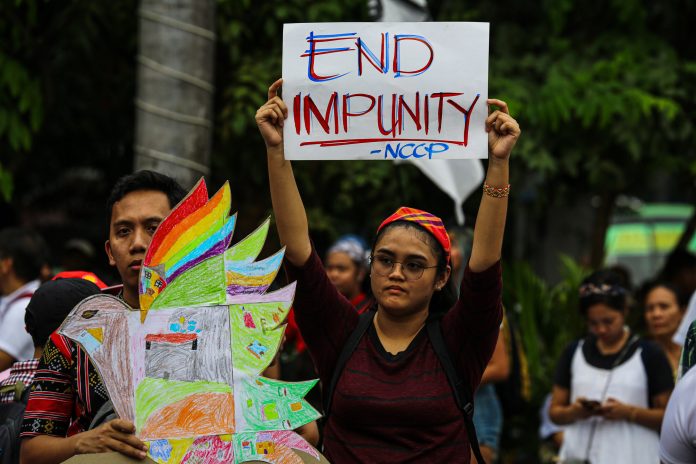A REPORT released by the UN Human Rights Office on Thursday, June 4, accused the Philippines of “serious human rights violations,” including killings, arbitrary detentions, and the “vilification of dissent.”
The report, which was mandated by a UN Human Rights Council resolution, noted that many of the human rights concerns it has documented are long-standing, but have become more acute in recent years.
The global human rights body noted what it described as the “widespread and systematic killing of thousands of alleged drug suspects.”
It also cited the alleged killings of “numerous human rights defenders … over the past five years.”
The report said that since the Philippine government launched its campaign against illegal drugs in 2016, official figures indicate that at least 8,663 people have been killed.
Several human rights groups have earlier claimed that the death toll was higher.
The UN Human Rights Office has also documented that, between 2015 and 2019, at least 248 human rights defenders, legal professionals, journalists and trade unionists have been killed in relation to their work.
The report said there has been “near impunity” for the killings, with only one conviction for the killing of a drug suspect in a police operation since mid-2016.
The human rights body said witnesses, family members, journalists and lawyers interviewed for the report expressed fears over their safety and a sense of powerlessness in the search for justice.
The report said that given the failure of domestic mechanisms to ensure accountability, there is a need for “independent, impartial, credible investigations” into all allegations of serious violations of human rights and international humanitarian law.
It said that the UN High Commissioner “stands ready to assist credible efforts towards accountability at the national and international level.”

“While there have been important human rights gains in recent years, particularly in economic and social rights, the underpinning focus on national security threats – real and inflated – has led to serious human rights violations, reinforced by harmful rhetoric from high-level officials,” the report stated.
“This focus has permeated the implementation of existing laws and policies and the adoption of new measures – often at the expense of human rights, due process rights, the rule of law, and accountability,” it added.
The report noted that while the Philippines has a long-standing and robust tradition of human rights advocacy and activism, with more than 60,000 registered NGOs, human rights defenders have been subject to verbal and physical attacks, threats and legal harassment for nearly 20 years.
It said that the vilification of dissent and attacks against perceived critics are being “increasingly institutionalized and normalized in ways that will be very difficult to reverse.”
The report said the “red-tagging,” or labelling of individuals or groups as communists or terrorists, has posed a serious threat to civil society and freedom of expression.
The report notes how in some cases those who have been red-tagged were subsequently killed.
“Human rights advocacy is routinely equated with insurgency and the focus diverted to discrediting the messengers rather than examining the substance of the message,” the report said.
“This has muddied the space for debate, disagreement and for challenging State institutions and policies,” it added.
The UN Human Rights Office also detailed ongoing threats to freedom of expression, with legal charges and prosecutions being brought against journalists and senior politicians critical of the government, as well as actions to shut down media outlets.
The report also documents reports of human rights abuses by non-State actors, including killings, abductions, recruitment of children and extortion by the communist New People’s Army.

The United Nations lists the NPA among parties that commit grave violations affecting children in situations of armed conflict.
The High Commissioner welcomed the substantive engagement between the UN Human Rights Office and the Government of the Philippines in the preparation of the report.
“The Philippines faces major challenges – structural poverty, inequality, armed conflict, frequent natural disasters, and now the COVID-19 crisis,” said Michelle Bachelet, the United Nations High Commissioner for Human Rights.
“It is vital the government’s responses be grounded in human-rights approaches and guided by meaningful dialogue,” she said, adding that accountability and full transparency for alleged violations are “essential for building public trust.”
She said the UN Human Rights Office was ready to support the Philippines – constructively and concretely – in implementing the report’s recommendations, in an effort to halt the many long-standing, widespread human rights violations in the country, and to prevent their recurrence.
The report is based on 893 written submissions, substantial input from the government of the Philippines, analysis of legislation, police reports, court documents, videos, photos and other open source material, as well as interviews with victims and witnesses.









